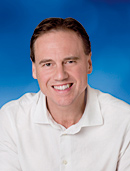A Quote by Prashant Bhushan
One should at least have some self-righteous ego. Not in the sense that you refuse to apologise even when judges reason with you to apologise. Self-righteous ego in the sense that nobody can force you to apologise if there is no reason to do so.
Related Quotes
We apologise for the laws and policies of successive parliaments and governments that have inflicted profound grief, suffering and loss on these our fellow Australians. We apologise especially for the removal of Aboriginal and Torres Strait Islander children from their families, their communities and their country.
Self-righteousness is unavoidable. You can either be a self-righteous Pharisee where you think you are better than everyone else or you can be a self-righteous pagan who thinks you are better than the Pharisee. If you are a self-righteous person, I could become very self-righteous thinking that you're self-righteous and you think you're so good but I know you're bad. I know I'm bad so that makes me better than you.
Then ego goes on growing, because the society needs you as an ego, not as a Self. The Self is irrelevant for the society; your periphery is meaningful. And there are many problems. The ego can be taught and the ego can be made docile and the ego can be forced to be obedient. The ego can be made to adjust, but not the Self. The Self cannot be taught, the Self cannot be forced. The Self is intrinsically rebellious, individual. It cannot be made a part of society.
The term "self" seems a suitable one for the unconscious substrate whose actual exponent in consciousness is the ego. The ego stands to the self as the moved to the mover, or as object to subject, because the determining factors that radiate outward from the self surround the ego on all sides and are therefore supraordinate to it. The self, like the unconscious, as an a priori existent out of which the ego evolves. It is, so to speak, an unconscious prefiguration of the ego. It is not I who create myself; rather, I happen to myself.
To the former child migrants, who came to Australia from a home far away, led to believe this land would be a new beginning, when only to find it was not a beginning, but an end, an end of innocence - we apologise and we are sorry. To the mothers who lost the maternal right to love and care for their child - we apologise, and we are sorry.
In Buddhist ideology, the conventional self is that which is constructed in a way by the use of the pronoun, and when you realize there is no absolute ego there, no disconnected one, self, or ego, then that actually strengthens your conventional ego. It does so in the sense that then you realize it's a construction, and you can strengthen it in order to help others, or do whatever you're trying to do, it's not like you no longer know who you are. Then you can organize your behavior by using your ego, as it's now the pronoun.
I always have a feeling of awe and wonder at what God can do - using me as an instrument. I believe that anyone who is fully surrendered to God's will can be used gloriously - and will really know some things - and will probably be called self-righteous. You're called self-righteous if you are self-centered enough to think you know everything - but you may also be called self-righteous by the immature if you are God-centered enough to really know some things.


































